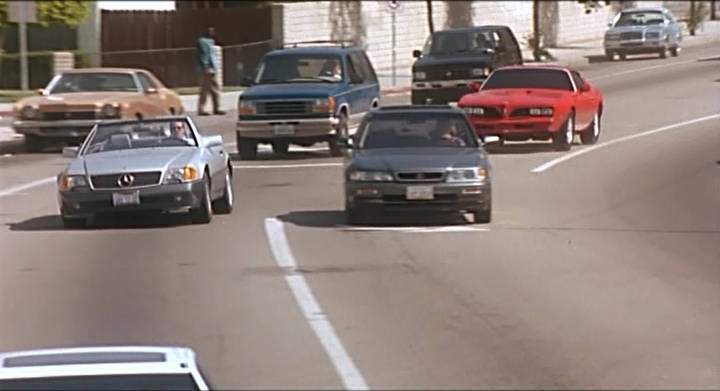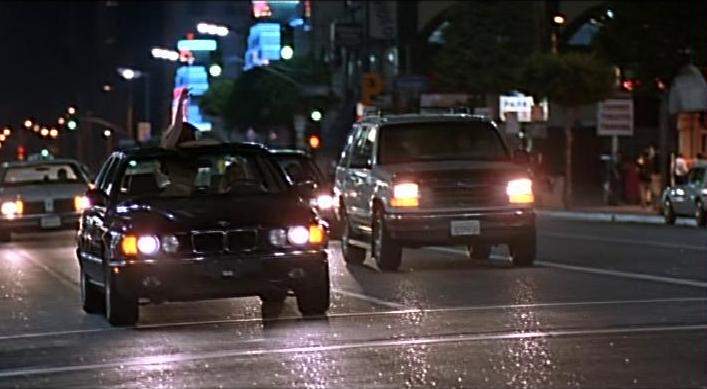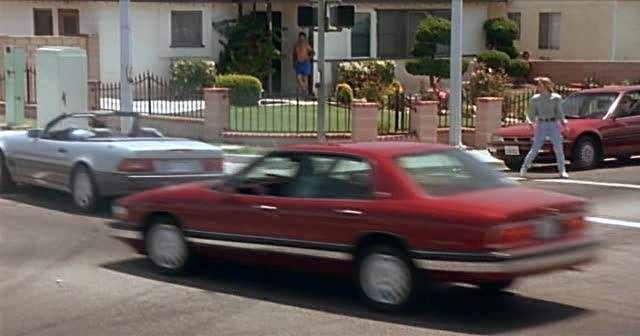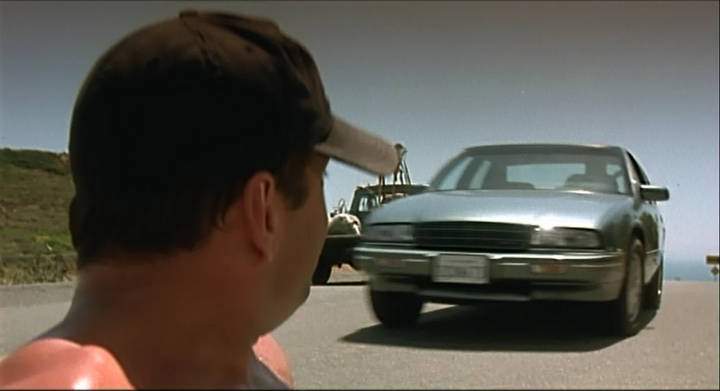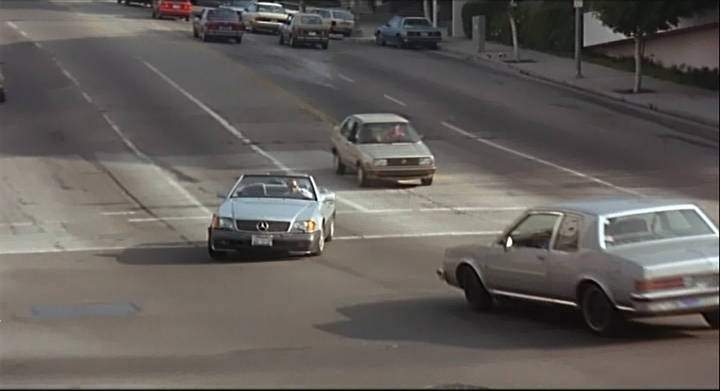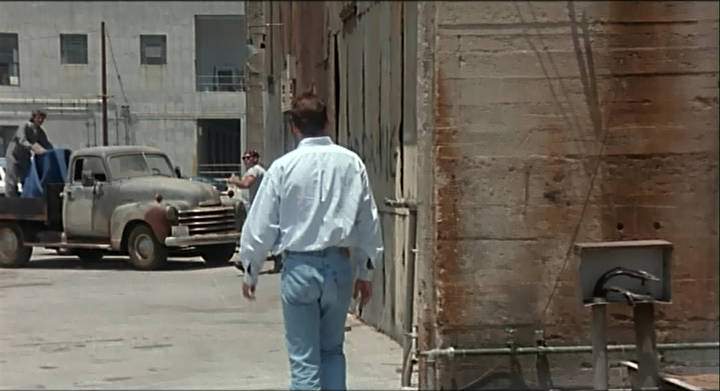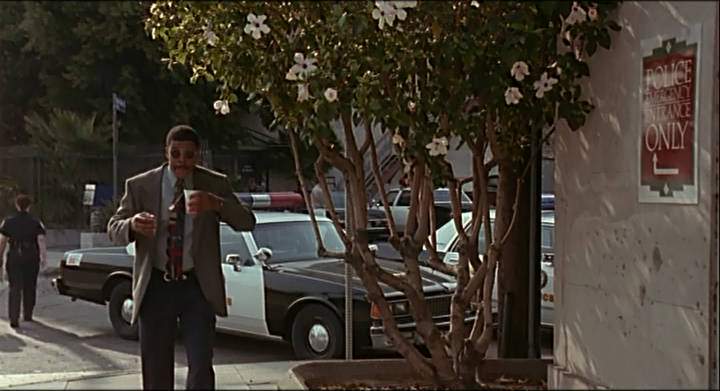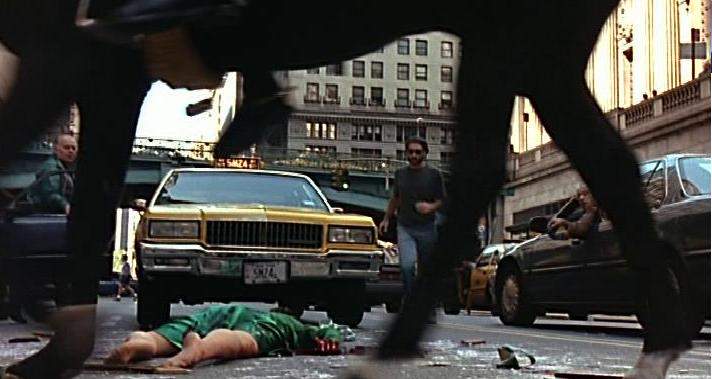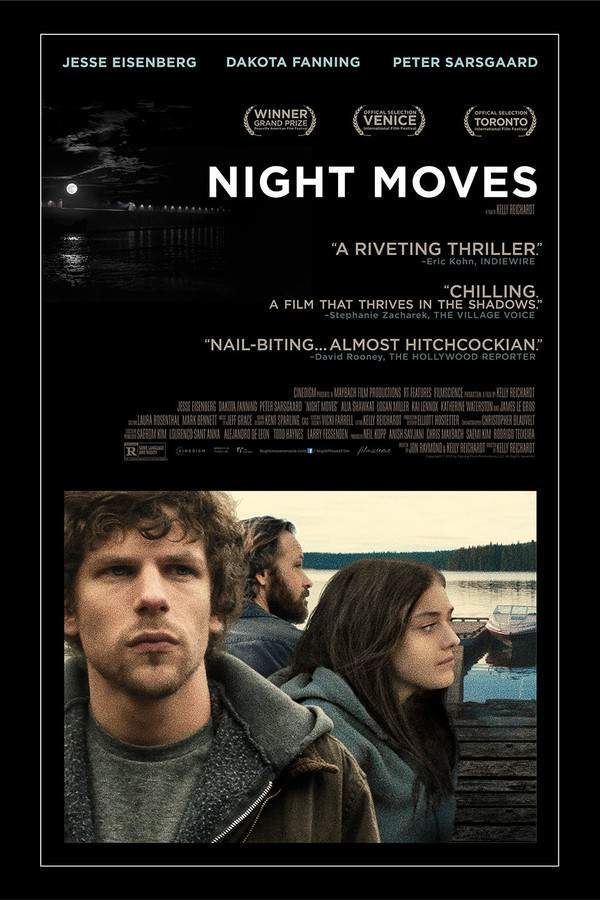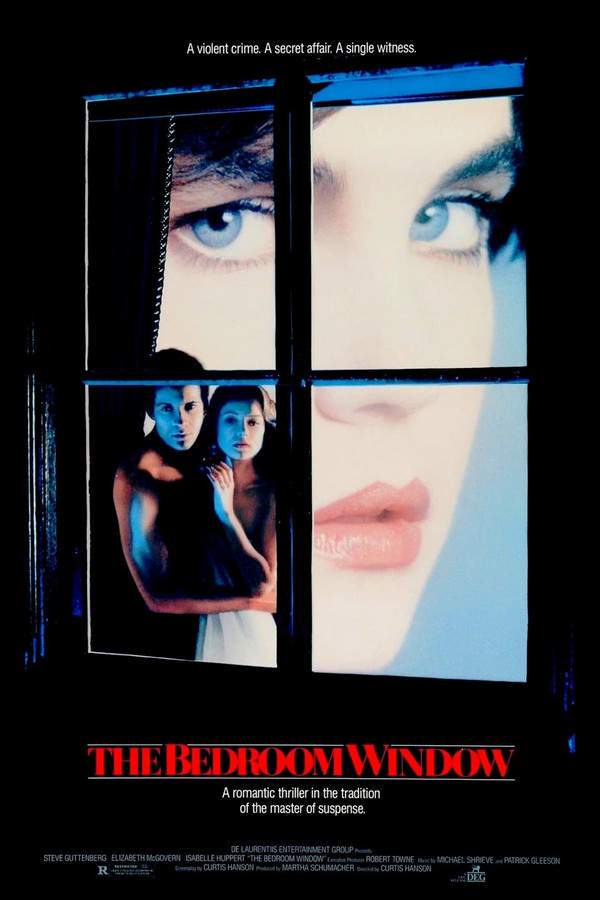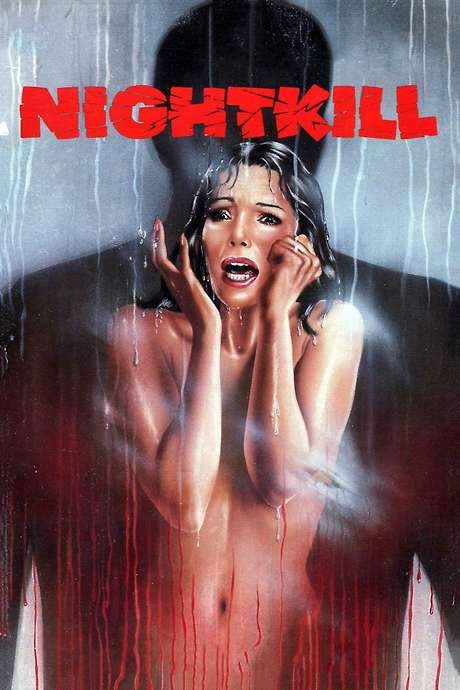Color of Night 1994
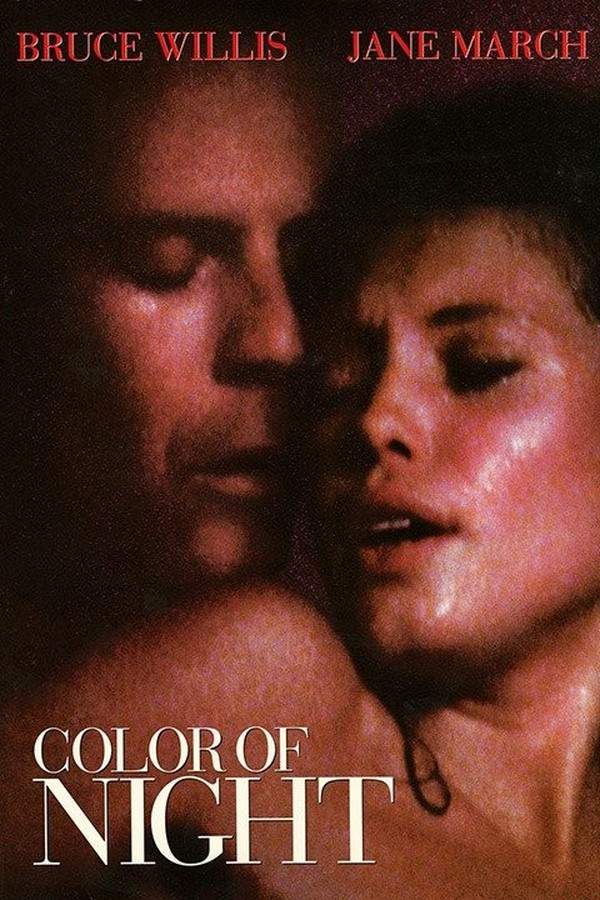
A color-blind psychoanalyst finds himself the target of a relentless stalker after taking over the therapy group of a friend who was recently murdered. The group's patients share a connection to a mysterious young woman, with whom the analyst begins experiencing intense and unsettling encounters. As he investigates the killer’s identity, he must confront his own psychological vulnerabilities and the dark secrets of those around him.
Does Color of Night have end credit scenes?
No!
Color of Night does not have end credit scenes. You can leave when the credits roll.
Meet the Full Cast and Actors of Color of Night
Explore the complete cast of Color of Night, including both lead and supporting actors. Learn who plays each character, discover their past roles and achievements, and find out what makes this ensemble cast stand out in the world of film and television.
External Links and Streaming Options
Discover where to watch Color of Night online, including streaming platforms, rental options, and official sources. Compare reviews, ratings, and in-depth movie information across sites like IMDb, TMDb, Wikipedia or Rotten Tomatoes.
Ratings and Reviews for Color of Night
See how Color of Night is rated across major platforms like IMDb, Metacritic, and TMDb. Compare audience scores and critic reviews to understand where Color of Night stands among top-rated movies in its genre.

36
Metascore
5.7
User Score


22%
TOMATOMETER

30%
User Score

5.2 /10
IMDb Rating

57
%
User Score
Take the Ultimate Color of Night Movie Quiz
Challenge your knowledge of Color of Night with this fun and interactive movie quiz. Test yourself on key plot points, iconic characters, hidden details, and memorable moments to see how well you really know the film.
Color of Night Quiz: Test your knowledge on the psychological thriller 'Color of Night' featuring Bruce Willis as Bill Capa.
What unusual condition does Bill Capa suffer from after Michelle's death?
Color blindness
Night blindness
Synesthesia
Acrophobia
Show hint
Awards & Nominations for Color of Night
Discover all the awards and nominations received by Color of Night, from Oscars to film festival honors. Learn how Color of Night and its cast and crew have been recognized by critics and the industry alike.
52nd Golden Globe Awards 1995
Best Original Song
Full Plot Summary and Ending Explained for Color of Night
Read the complete plot summary of Color of Night, including all major events, twists, and the full ending explained in detail. Explore key characters, themes, hidden meanings, and everything you need to understand the story from beginning to end.
Bill Capa, a psychoanalyst played by Bruce Willis, caters to affluent and mentally unstable individuals in the bustling city of New York. One fateful day, his patient Michelle, portrayed by Kathleen Wilhoite, arrives at their session in a deeply troubled state. As Bill insensitively brushes off her issues, telling her “look in the mirror,” he distracts himself with a phone call. In a moment of despair, Michelle leaps from his office window, resulting in her tragic death. The sight of her bright green dress soaked in red blood leads Bill to suffer from acute stress-induced color blindness, forever seeing the world in shades of gray instead of red.
In an effort to heal, Bill seeks advice from his friend and mentor, Dr. Larry Ashland (Jeff Corey), who encourages him to move past his guilt. To find solace, Bill decides to spend some time with an old college buddy in California. Upon his arrival in Los Angeles, he reconnects with fellow therapist and best-selling author Dr. Bob Moore, played by Scott Bakula, who invites him to his Monday evening group therapy session. Although hesitant, Bill agrees and becomes acquainted with a diverse and complex group of individuals.
Among them is Clark, a character brought to life by Brad Dourif, who struggles with obsessive-compulsive disorder, emphasizing cleanliness and rituals of counting. Then there’s Sondra, portrayed by Lesley Ann Warren, a nymphomaniac with kleptomaniac tendencies, often marrying wealthy older men who meet tragic ends. Buck, a character played by Lance Henriksen, is an ex-cop haunted by the horrors of his past. Meanwhile, Casey, depicted by Kevin J. O’Connor, is a sadomasochist living a life supported by a wealthy, abusive father, and Richie, a sixteen-year-old boy grappling with his identity and a history of legal troubles.
During the group’s interactions, it becomes clear that beneath their seemingly jovial camaraderie lies a deeper turbulence. Following the therapy session, Bob drives Bill to his opulent Malibu residence, which is heavily fortified due to Bob’s receipt of anonymous death threats, likely stemming from a member of the group. Bob hopes that Bill can utilize his unique ability to discern which of the patients might harbor violent tendencies. However, Bill feels unable to detect anything that would suggest murderous intent amongst them.
Tragedy strikes again when Bob is found murdered in his office, leading Detective Lieutenant Hector Martinez, played by Rubén Blades, to suspect one of the patients. Reluctantly, Bill agrees to inform the group of Bob’s demise as he believes he can handle the situation with greater sensitivity than Martinez. Unfortunately, Bill’s entanglement deepens when he encounters Rose, played by Jane March, a captivating young woman who rear-ends him in her jeep after the group meeting, further complicating his emotional landscape.
In the wake of the shocking news, Bill steps up to lead the Monday sessions, drawing the affections of the devastated group members. Tension builds as Martinez presses Bill for answers, but Bill refuses to abandon his newfound responsibilities. Following a series of events that intertwine Bill with the dark secrets of the patients, including shocking revelations about their pasts, he faces numerous challenges that force him to delve deeper into the psyche of those around him.
As Bill grapples with the duality of his role as both a therapist and a suspect, he encounters a harrowing sequence of danger, culminating in a chilling confrontation with Dale Dexter, Richie’s older brother depicted by Andrew Lowery. Emotions run high as Rose, unmasked as both Bonnie and a victim of familial abuse, also faces her twisted past involving Richie’s suicide—her torment stemming from a tragic history of manipulation and violence.
In a climax steeped in adrenaline and revelation, Bill uncovers the gruesome truth behind the murders and strives to protect Rose from her predatory brother, leading to a thrilling showdown that ultimately reveals the tender bond between them. In a moment of catharsis, Rose saves Bill from impending doom, leading to a poignant resolution where love conquers trauma. As they embrace amidst the turmoil, Bill’s healing manifests visually as he regains his ability to perceive color—truly seeing the red beacon of hope restored in his life. Through torrential rain and urgent calls from Lieutenant Martinez, their journey together culminates in a heartfelt reunion at the peak of their harrowing ordeal, reminding us of the transformative power of love.
Uncover the Details: Timeline, Characters, Themes, and Beyond!

Coming soon on iOS and Android
The Plot Explained Mobile App
From blockbusters to hidden gems — dive into movie stories anytime, anywhere. Save your favorites, discover plots faster, and never miss a twist again.
Sign up to be the first to know when we launch. Your email stays private — always.
Watch Trailers, Clips & Behind-the-Scenes for Color of Night
Watch official trailers, exclusive clips, cast interviews, and behind-the-scenes footage from Color of Night. Dive deeper into the making of the film, its standout moments, and key production insights.
Cars Featured in Color of Night
Explore all cars featured in Color of Night, including their makes, models, scenes they appear in, and their significance to the plot. A must-read for car enthusiasts and movie buffs alike.
Color of Night Themes and Keywords
Discover the central themes, ideas, and keywords that define the movie’s story, tone, and message. Analyze the film’s deeper meanings, genre influences, and recurring concepts.
Color of Night Other Names and Titles
Explore the various alternative titles, translations, and other names used for Color of Night across different regions and languages. Understand how the film is marketed and recognized worldwide.
Similar Movies To Color of Night You Should Know About
Browse a curated list of movies similar in genre, tone, characters, or story structure. Discover new titles like the one you're watching, perfect for fans of related plots, vibes, or cinematic styles.
Quick Links: Summary, Cast, Ratings, More

What's After the Movie?
Not sure whether to stay after the credits? Find out!
Explore Our Movie Platform
New Movie Releases (2026)
Famous Movie Actors
Top Film Production Studios
Movie Plot Summaries & Endings
Major Movie Awards & Winners
Best Concert Films & Music Documentaries
Movie Collections and Curated Lists
© 2026 What's After the Movie. All rights reserved.




















